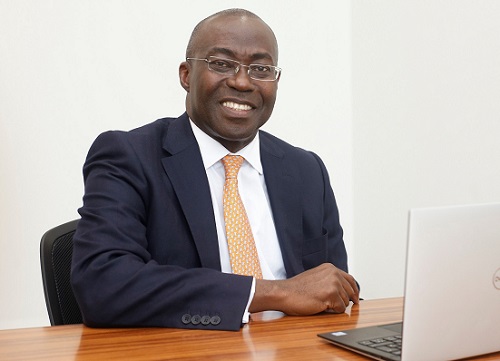
Ghana Integrated Aluminium Development Corporation scouts for investors
The Ghana Integrated Aluminium Development Corporation (GIADEC) has begun a competitive bidding process to attract worthy investors that will help to transform the country's aluminium and bauxite industry.
Already, over 40 multinational companies have expressed interest and are being taken through the selection processes to develop various aspects of the aluminium value chain.
The Chief Executive Officer (CEO) of GIADEC, Mr Michael Ansah, who made this known in Accra Wednesday, said the selection process was expected to be completed by the first quarter of 2020 and the successful bidders announced In April 2020.
He stated this at a press briefing to highlight major achievements of GIADEC since it began operations and the way forward for the aluminium industry.
GIADEC was established through an Act of Parliament to promote and develop Ghana’s Bauxite Reserves and downstream industry.
Due process
Mr Ansah explained that the first of three selection phases had been completed which saw 14 groups of companies shortlisted for the second phase.
"We are looking at an integrated approach to harnessing these natural resources for the benefit of the country so we will be trying to get companies that have the technical ability and expertise to integrate and be able to do mining, refining, smelting and energy production.
"There are companies from Africa, the Americas, Asia, Pacific, Europe and even a consortium of Ghanaian companies, so we will look at those which have the technical, operational and financial capacities to deliver on the job," he stressed.
Priority
Mr Ansah said GIADEC was focused on ensuring that Ghana got the best out of the aluminium industry with at least 30 per cent stake in any new mine, refinery or smelter entity.
He said GIADEC have plans to get four mining concessions with a combined production of about 20 million tonnes of bauxite a year and three refineries with a combined capacity of four to six million tonnes of alumina or refined bauxite.
In addition, he said the corporation would revamp the Volta Aluminium Company (VALCO) to increase its production capacity to 300,000 tonnes of aluminium and also establish two smelters with the production capacity of up to 500,000 tonnes of aluminium.
"It is expected that this will lead to the creation of 35,000 new jobs, 10,000 of which will be direct and 25,000 indirect. It is also expected that there will be an annual boost to the economy of about $10 billion, which is roughly 15 per cent of the country's expected gross domestic product (GDP) as the end of 2019.
"The $10 billion boost will be achieved through mining, refining and smelting in addition to contributions from the downstream and allied industries," he said.
Infrastructure
Mr Ansah added that GIADEC had also started engagement with key state agencies, power producers and other stakeholders on how on the development of a coordinated master plan to help build the needed infrastructure and secure reliable power supply for the effective operation of the industry.
He said for instance, that discussions with the Ministry of Railway Development had reached advanced stages since the aluminium industry was going to rely heavily on rail transportation to cart their products to the port.
Responsible mining
Mr Ansah assured the public that GIADEC would ensure that mining activities were done in a responsible manner in line with international practices to avoid the destruction of the environment.
“There are examples of industry best practices where forest reserves have been mined and successfully rehabilitated and GIADEC will draw on these examples to ensure minimal impact to the environment and local communities,” he said.
Touching on the concerns surrounding mining bauxite in the Atewa Forest in the Eastern Region, he said the best technology would be used to extract the mineral without compromising the quality of the environment.
Background
GIADEC was established through an Act of Parliament in August 2018 with a mandate to promote and develop an integrated aluminium industry.
The GIADEC board was inaugurated in March 2019.
Currently, it is estimated that there are 900 million tonnes of bauxite minerals across the three main locations in the country.
The Awaso site has 60 million tonnes while the Nyinahin and Kyebi sites have 700 million tonnes and 160 million tonnes each.
